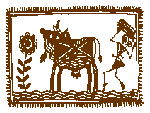Livestock keepers concerns on FTAs

LIFE Network / SEVA
02 May 2010
To,
Department of Industrial Policy and Promotion (DIPP) ,
Ministry of Commerce and Industry (MoC),
Government of India
Udyog Bhawan,
New Delhi 110 007
Tel: 011-23062261
Fax: 011-23063418
Dear Sirs/Madams,
Re: Concerns on FTAs
We are writing to express our concerns about trade being given importance over biodiversity rights, livestock keepers, animal healthcare and rural livelihoods. As a network of peoples actively engaged in these issues, LIFE Network works for conservation of local livestock breeds maintained by small scale livestock keepers and traditional pastoral communities.
We learn with alarm about the several bilateral trade and investment agreements that your Department is currently negotiating and drafting texts for on behalf of the Government of India. From whatever limited information is available in public, we gather that these trade talks go directly against what the LIFE Network is struggling for.
- WTO-plus cuts in tariffs negotiated under FTAs, will make our livestock and fisheries sector highly vulnerable to volatilities of the global market with no space for domestic safeguards from import surges. This will severely affect local producers both in informal agriculture, fisheries and small scale processing.
- The provisions on sanitary and phytosanitary standards (SPS) and technical barriers to trade (TBT) will constrain the freedom of local communities and state governments to set our own standards in relation to biosafety, food safety and health.
- Stricter IPR standards demanded by the likes of EU, Japan, Australia and New Zealand will further the privatisation of seeds and intensify monopolies over seed, pesticides, fertilisers and animal vaccines. The industry-conducive IPR environment will only encourage more proprietary agriculture technologies – such as genetically modified crops, animals and fish. This is a serious risk to local biodiversity.
- Any foreign investment liberalisation provisions in FTAs, which facilitate corporate overseas investor takeovers of land and domestic food production threaten people’s rights to farm land, common pastures, coastal areas and water use. The loss of common property resources, and denial of access of forests and water bodies affect the livelihoods of pastoralists and small farmers who depend upon these resources for livestock keeping. Else the animal breeds kept by them will gradually reduce in number and finally breeds will become extinct. Breeds are products of indigenous knowledge and cultural expression of livestock keepers. Therefore loss of breeds is also loss of traditional knowledge in which they are embedded.
- This will undermine the very struggles of our pastoral and nomadic communities; seriously endangering the lives and livelihoods of millions of resource-dependent populations of the country. In any trade agreement small farmers (also as plant breeders), Livestock Keepers (animal breeders), Healers (Traditional knowledge holders), Innovators (initiators of grassroots green technologies) and Local Communities (preserving natural, biological resources) and their rights and roles need to be respected as per their customary norms, national legislation and global treaties.
We request you provide or initiate action for :
– texts of FTAs under negotiation to be made available
– stopping trade talks until public consultations have been held
– discussions on FTA provisions to be initiated in State legislatures, as most of the subjects these FTAs impinge upon are on the State List of the Constitution of India
– social and ecological impact studies be carried out on how these proposed FTAs affect livestock keepers
Keep us informed about any decisions that might be taken with reference to issues which affect the livestock keepers / small scale farmers , common property resources , their livelihoods, and breeds.
For more information please contact :
P.Vivekanadan,
LIFE Network Coordinator
C/O SEVA,
45-TPM Nagar,
Viratipathu,
Madurai-625 010,
Tamil Nadu
Phone : 0452-2380082, 2380943, 2383619
E-mail: vivekseva@gmail.com
Cc. The Ministry of Environment and Forests (MoEF),New Delhi.





